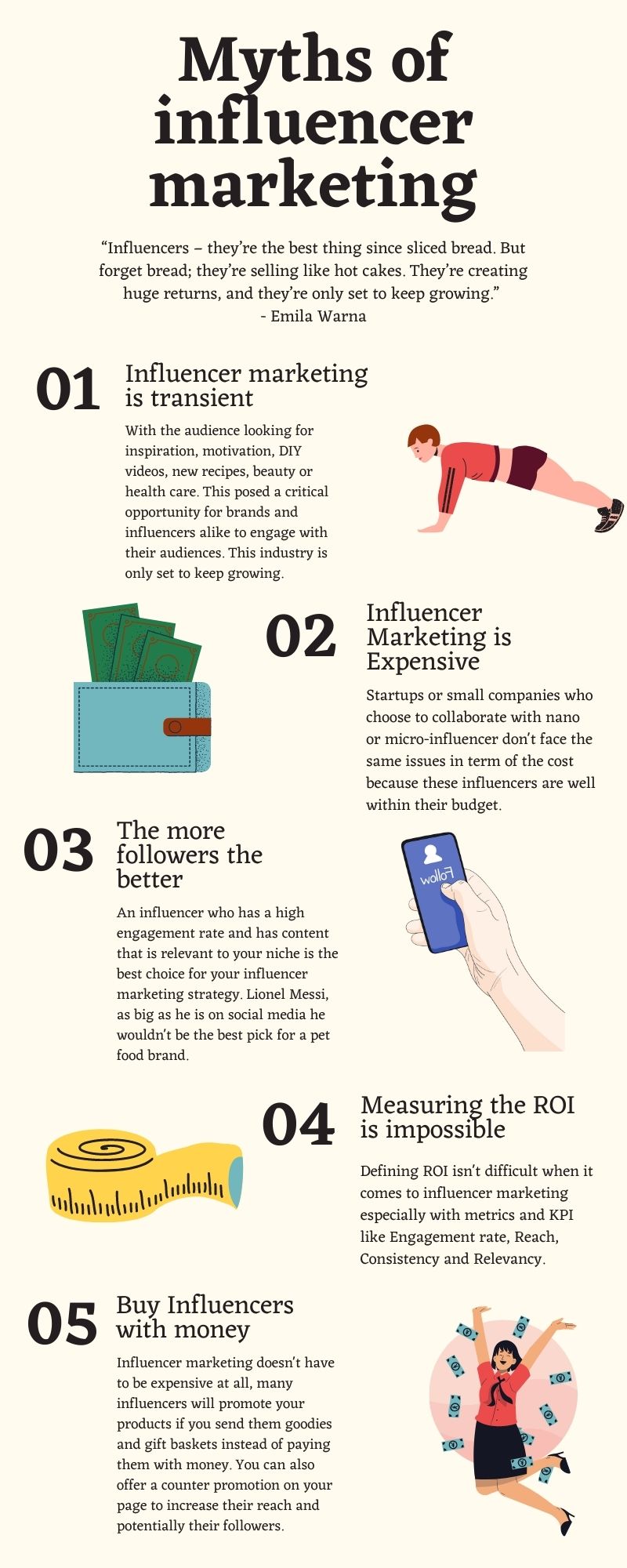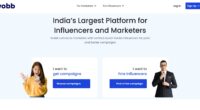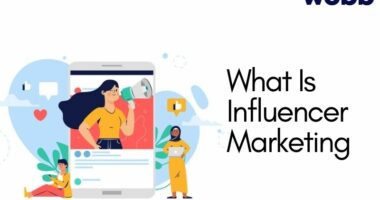When one comes across influencer marketing campaign content, which one often does consider the surge of it all over social media, a question that pops into the mind is, “does this work?”.
Content creators have been the talk of the town which grows louder as more and more people start engaging with social media. This makes it all the more necessary for us to bust the myths about influencer marketing and provide people with the correct information so brands can leverage this new marketing strategy to benefit their operations.
Myths About Influencer Marketing
#1 Influencer Marketing Myth:
Influencer Marketing is for younger generations
This is one of the biggest misconceptions about influencer marketing which is propagated solely based on the assumptions that people who act and use social media platforms are millennials and GenZ, which is not the case. The age demographics for the audience of every platform varies.
Studies have shown that 35% of Pinterest users are above the age of 30, whereas for Twitter, it’s 40. Similarly, demographics differ for each platform. Even if more percentage of the audience may be younger than the target audience, if the campaign is executed right then, it can share the content with the target audience.
#2 Influencer Marketing Myth:
Influencer Marketing’s effectiveness correlates to the number of followers
Brands believe that influential influencers are the ones who have vast numbers of followers and that the more number of followers result in ineffectiveness of the marketing campaign. However, the effectiveness of the campaign centres around the engagement rate of the influencer profile.
Some influencers can have more than 100K followers and not even one-fourth of their engagement, whereas influencers with fewer followers can have more engagement. It should also be noted that often influencers can easily buy followers. These followers are often inactive accounts or bot accounts which defeats the purpose of it all, further making the “number of followers” unpromising criteria to decide on an influencer.
#3 Influencer Marketing Myth:
Influencer Marketing is expensive
Another common myth is that influencer marketing is expensive. But the truth is the cost of the campaign drastically differs on several factors. These factors are the size of the influence platform, their engagement rate, demographic of their audience, exclusivity, the deliverables expected from the influencer, and so many more.
Also, campaigns can be done without payments to where barter takes place and an influencer is given the product from the brand or their vouchers for the deliverables delivered.

#4 Influencer Marketing Myth:
Influencer Marketing is meant for more prominent brands
Many small brands have inclined towards this model of marketing as it helps them develop their brand more with the recognition they receive from influencers.
As mentioned in the previous Myths About Influencer Marketing, a brand doesn’t need a grand budget to execute a marketing campaign including influencers and get the results they want.
#5 Influencer Marketing Myth:
Influencer Marketing is just advertising
People fail to understand that advertisements and content created from influencer marketing are drastically different. Advertisements are entirely scripted and are precisely what the brand wants to be promoted.
Whereas content created by influencers is much more authentic and involves helpful reviews that help the audience know more about the brands, their products and services. Even though an integration, it’s more about what the influencer has to say than what the brand wants them to say.
#6 Influencer Marketing Myth:
Influencer Marketing will get results overnight
There is a common misconception that expects influencer marketing to generate results quickly. Brands need to understand that it takes time for the content created to reach out to the audience because of the platform-specific algorithms.
It needs to be pointed out that the audience engages with the content at their own pace. The results will be seen gradually, and expecting overnight results is just overly ambitious.
#7 Influencer Marketing Myth:
Influencer Marketing has no structure
Even though it was mentioned earlier that influencers have more agency in this marketing model, that refers to creative agency and freedom. The brand still has substantial control over the entire process, and there are rules and conditions that both the parties have to follow and meet respectively to make sure that the whole thing doesn’t turn into a big mess.
And to avoid it from becoming a big mess, platforms like Wobb help manage your brand influencer campaigns with their team of experienced professionals. We enable a smooth marketing experience for both brands and influencers and assist them in the entire process.





